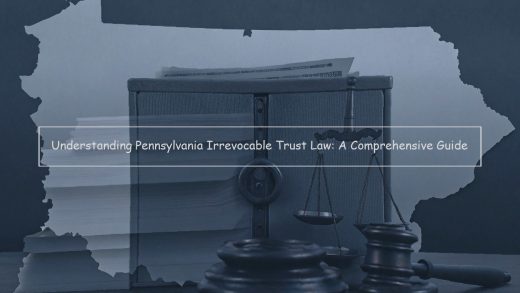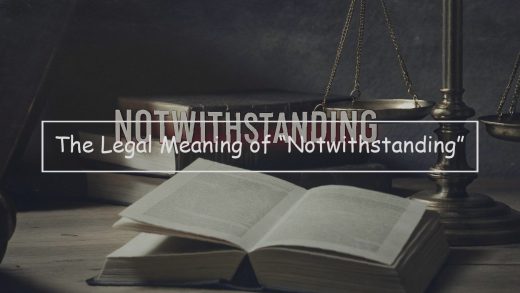What is a Massachusetts Non-Compete?
To put it simply, a non-compete agreement is a contract between an employer and an employee that stipulates that the employee will not work for a competitor of the employer after termination from employment, typically for a specified period of time and in a specified geographic area. A non-compete agreement could also, in theory, be entered into with a consultant that is not technically classified as an employee. However, the Massachusetts Non-Compete Act does not apply to consultants who enter a non-compete agreement with a business, so it is important to qualify what a non-compete agreement is when entered into with a consultant.
Non-compete agreements are often considered restrictive covenants in that the employee is technically restricted from pursuing similar lines of work or from working for competitors of their former employer. The purpose of a non-compete agreement is for the benefit of the employer , as it prevents former employees from taking advantage of the confidential information, trade secrets and customer relationships to which they were exposed while employed. Non-compete agreements are often considered a standard condition of employment, especially in senior management and specialized positions that require the employee to have access to sensitive information. Other times, an employer may not ask an employee to sign a non-compete agreement until after employment has begun, as was the case with the plaintiff in the recent Massachusetts case decided by the Massachusetts Supreme Judicial Court, Boston Scientific Corp. v. Lee (SJC-12809).
Common professions to use non-compete agreements include consultants, salesmen, business and marketing professionals, managers, administrators, engineers, IT professionals and more. Non-compete agreements are particularly common in the following industries:

Massachusetts Statutory Requirements
Massachusetts General Laws Chapter 149, Section 24L places several requirements imposed by law. First, the consideration provided by the employer for the non-compete must be fair and reasonably related to the original employment agreement. This, of course, may depend on the circumstances, using a common sense approach that goes beyond mere emotions. The relationship between the employer and employee must also be material and the attorney reviewing the agreement must ask themselves if they would they be willing to enter the same agreement based on the same consideration. The question of whether past or future consideration is required by the statute has been reviewed by case law. The Massachusetts Supreme Judicial Court ("SJC") held that the statute does not require the employer to give a bonus or raise in addition to the original employment agreement. The SJC also held that employment agreements do not need to be renewed; however, the requirements mentioned have to be followed when the agreement is created. This means that an employer may revise and formerly valid covenant not to compete or non-solicitation provision and still be enforceable if the new agreement meets the statutory requirements. While this may sound unusual, it was also held that the statute’s requirements can be satisfied after the employment agreement has already been executed between the parties. An important element to note is in a new agreement between the two parties, the employee does not have to provide consideration for this new agreement, as this is not something that is required by the statute. The clarification is significant for those special circumstances where a previously valid agreement makes no reference to the statutory requirements, leaving such agreements vulnerable to litigation.
Other requirements for these agreements are that it must be reasonable in geographic scope as well as time and that it must be in promotional documents and included "at the commencement of the employment" or given to the employee by the employer "prior to a formal offer of employment that has a written and electronic acceptances." And as previously mentioned, these agreements must be supported by fair and reasonable consideration as is required under the statute. However, the statute will not allow agreements for time frames longer than twelve months. This one-year limit is a matter of public policy concern.
Enforceability of Massachusetts Non-Competes
Courts use a multi-factor inquiry in determining the enforceability of a non-compete agreement. While the Massachusetts Supreme Judicial Court has articulated criteria that it will use in these cases, it remains to be seen whether the recently issued lower court decision in the Fidelity case will impact how this inquiry is conducted.
The SJC has stated that the trial courts should consider the following among other factors (i) whether the non-compete clause serves a legitimate business interest, (ii) whether the non-compete clause employs a restraint no greater than is necessary to protect that interest, (iii) whether the time or territorial restriction imposed is reasonable in the context of the particular contractual relationship, and (iv) whether the non-compete clause imposes an undue hardship on the employee; provided, however, that the application of these factors should take place within the framework of the specific factual situation.
In considering the reasonableness of the time limitation, the court generally finds that two years is presumptively reasonable.
Regarding the geographic scope of the non-compete, the SJC has specifically ruled that 25 miles was reasonable in the context of the circumstances in that case. It has suggested that a 125 mile radius is probably beyond what would be appropriate. One Massachusetts court has found that a 12-mile radius that primarily seeks to protect state-wide interests, such as blue laws for closing on Sundays, is too narrow, while at the same time stating that a broad geographic scope was not appropriate.
The SJC also recognized two exceptions to the general enforceability of a reasonable prohibition against solicitation of customers. Specifically, in accusing an employee of soliciting customers, "a bona fide complaint to an employer regarding a supervisor’s actions…is not solicitation of customers to leave their business relationship with the employer.
However, the SJC has held that these circumstances alone are not enough to establish the unique need or exigent circumstances required to warrant revision of a non-compete agreement. To the contrary, revising the terms of a non-compete agreement is an almost exclusively legislatively function.
Employee Protections Under the Law
There are also provisions that protect employees in connection with the enforcement of post-employment restrictions. In addition to the ban on the practices noted above, an employer may not retaliate against an employee for terminating his or her employment in response to a noncompete agreement. Importantly, an employer who asserts a claim in violation of this provision may be liable for attorney’s fees under Massachusetts G.L. c. 149 , § 148A.
The attorney’s fee liability is in addition to any breach of contract damages or injunctive relief the employee may be awarded to remedy enforcement of the improperly asserted claim.
For employers seeking to enforce or employees seeking to challenge noncompete agreements, caution is advised until the law regarding the validity and enforceability of noncompetition agreements is clarified by Federal and/or state courts.
Recent Developments in Massachusetts Non-Compete Law
In 2018, the Massachusetts Non-Compete Agreement Act-which had changed the legal landscape for non-compete agreements in Massachusetts-was amended to address a number of practical concerns that arose under the prior version. In addition to those amendments, in September 2022, Governor Baker signed legislation amending the non-compete law a second time.
The 2018 Amendments to the Non-Compete Agreement Act
As we reported in January 2018, the 2018 amendments to the law had made non-competes unlawful in Massachusetts if literally complied with, and had added a number of exceptions where non-competes were lawful. In substance, the 2018 amendments added the following requirements for non-competes:
The 2022 Amendment to the Massachusetts Non-Compete Agreement Act
In September 2022, Governor Baker signed legislation adding yet another new exception to the law beyond the existing list of exceptions. Specifically, the new exception adds "situations where an apprentice or intern exempted from the minimum wage laws of [the Commonwealth] by a federal law for the gain or productive work experience of the apprentice or intern" to the list of persons who may be subject to non-competes. While this may seem an innocuous addition, it is telling of the rapid pace of technological changes and the need to ensure the Commonwealth’s laws keep up. Indeed, the 2018 amendments to the law only took effect in October 2018.
Alternatives to Non-Competes
In addition to asking employees to sign non-compete agreements, companies may request those employees to sign non-solicitation agreements that prevent them from soliciting an employer’s clients or employees in connection with their departure from employment. A typical non-solicitation agreement would prohibit the employee for a set period of time (usually one or two years) from soliciting the employer’s clients or employees either directly or indirectly. While these agreements are not per se disallowed or unenforceable, the restrictions that can be placed on employees for the duration and scope of a non-solicitation agreement are more limited than those imposed in a non-compete agreement. Employers should verify that there are legitimate business justifications for such restrictions, if they end up using them, or that these restrictions are limited in duration and scope to protect the company’s legitimate business interests .
Other alternatives or supplemental agreements to non-compete agreements include non-disclosure and confidentiality agreements, which prevent employees from disclosing trade secrets, confidential and proprietary information during and after their employment. The Massachusetts Trade Secret Act broadly defines "trade secret" to include any information relating to a business that is secret and derives economic value from the fact that it is secret. A company may claim that customer information, pricing information, product specifications, supplier information, computer software, and marketing plans are trade secrets, and thus the disclosure of any of these items by a former employee may be restricted or otherwise prohibited.
Employees also should consider what laws and remedies are available to them under federal law, as well as state laws, including the federal Computer Fraud and Abuse Act, the Massachusetts Uniform Trade Secrets Act, and the Massachusetts Wage Act.



